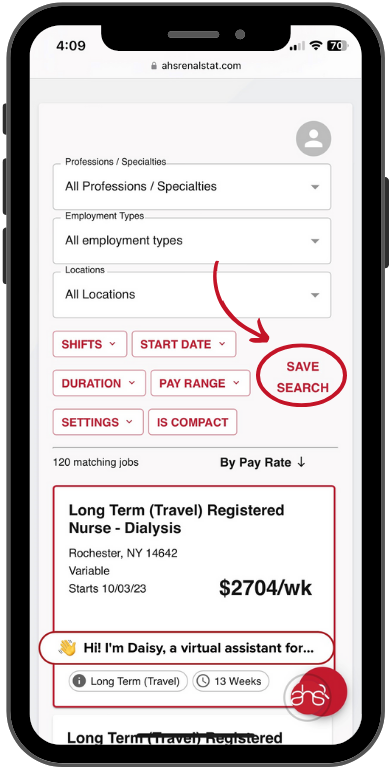The U.S. Bureau of Labor Statistics estimates that by 2016, more than one million new and replacement nurses will be required throughout the U.S. With the nursing shortage growing, the demand for travel nurses will be even greater. Statistics predict by 2020 a 29-percent increase in the national need for travel nurses.
Have you ever considered being a travel nurse?
Being a travel nurse isn’t always easy, but it does have its advantages. The biggest is the ability to pick what area of the country you want to see. To some, it is doing your job and being on vacation all in one.
I recently asked one travel dialysis nurse, Penny Pursley, some questions about the pros and cons of being a travel nurse.
What do you like most about being a dialysis travel nurse?
I enjoy the flexibility that the traveling lifestyle gives me. If I want to, I can work around important dates, so that I can be off for special occasions, conferences, etc.
When I first started traveling with my husband, I did it as a way to see the country and still be able to work. I also like not being tied to one spot. Over the years, I have been exposed to many different schools of thought, and all of them help to make me a stronger nurse.
Where are have you traveled for work?
Minneapolis, Minnesota (twice)
Orlando, Florida
Steven’s Point, Wisconsin (ten months)
Trenton, New Jersey
Sikeston, Missouri
Pittsburgh, Pennsylvania
Phoenix, Arizona
What do you like least about traveling for work?
Landing a “bad” assignment. By the nature of the job, I never expect to land anywhere cushy. If everything were great, they wouldn’t need travelers. So, I don’t expect easy, but I don’t expect nasty either. I’ve been on assignments where there were a lot of travelers, and the regular staff acted as though they might catch something from you if you got too close. I have been on assignments with “bad” travelers, and I especially dislike that.
How do you prepare for your travel assignments?
This is the tricky part. Work clothes (of course), weather appropriate items, necessary paperwork. Mail is temporarily forwarded. In this day and age, everything can be taken care of on-line, so if something is forgotten, it is easy to hop on-line and fix it. There’s usually a store close by, so, if I forget something, I just go get it. When I’m on assignment, it’s just like being at home (groceries, laundry, etc.).
How do you get acclimated to each individual unit (staff, management, etc.)?
Getting acclimated to each unit is as individual as each unit. Places that frequently use travelers generally have an orientation in place. Many places use the same orientation for all staff. If allowed to self-guide, I like to get the lay of the land. I start by meeting all staff, learning names and numbers and discovering the routine of the unit. I always get a feel for patients and staff. Policy and procedure review is a must. Not because I don’t know how, but because I want to know how they generally do things, then if I have questions I can follow-up. As a traveler, I feel as though I should hit the ground running. This is one of the reasons that I made sure that I was certified prior to starting to travel. I believe that all travelers should be certified in their field as a way of measuring competence. I have walked in and been in charge the first day, and I have shown up and been required to attend 2 weeks of orientation. I like to go in flexible, so that I am able to go with whatever their need is.
Any stories or suggestions you would like for other travel nurses to know?
Each assignment is a learning experience. Take it as such. Do not try to ram yourself down anyone’s throat, no one appreciates it. Everyone appreciates a calm and competent nurse.
Treat everyone as you would like to be treated, or expect your family members to be treated.
Fill the role that they need to have filled. It is never the same. Breathe. Enjoy the experience.
Take something away from it. Learn about where you are going before you leave. Look up the unit. Look up the area. Familiarize yourself with route to and from work, etc. Sight see. Be a tourist and a citizen. This is something that I have never taken the time to do, and I regret it now.
Travel Dialysis RNs are in big demand across the country – especially around the holidays. With holiday vacations, and life’s unexpected challenges, some dialysis facilities depend on travel and per diem nurses to keep their facility doors open.
So, if you like to travel, love a challenge, and are flexible, a travel assignment is perfect for you
Written by: Kelly Burleson, Marketing Director, AHS RenalStat, www.ahsrenalstat.com. Thank you to Penny Pursley, Dialysis Travel RN, for her assistance writing this article.
For more information on becoming a Travel Dialysis RN, contact:
AHS Renalstat
A Leader in Dialysis Staffing
877-309-3546
www.ahsrenalstat.com


